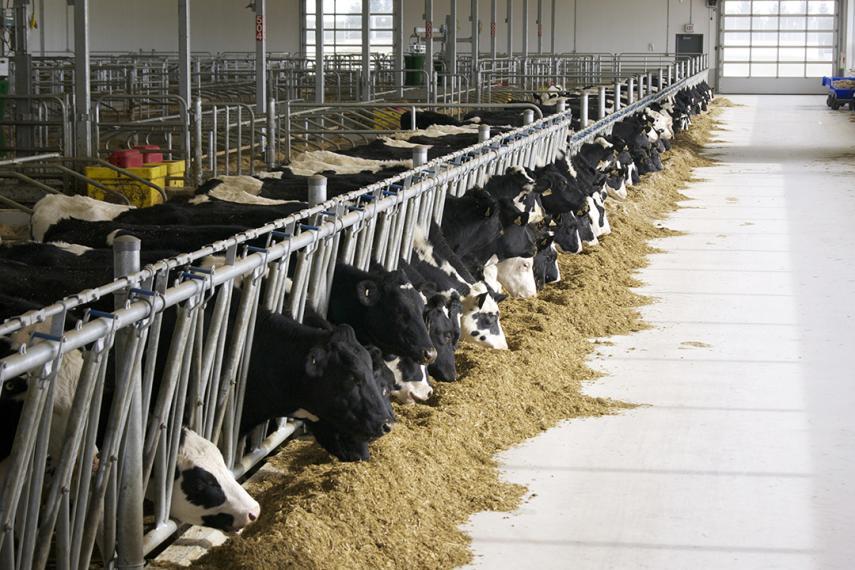Lighten the load: Guelph research guides lower carbon footprint for Canadian dairy sector

Canadian dairy farmers are lowering their carbon footprint and making money thanks in part to more efficient management practices developed by a University of Guelph researcher.

Based on studies by Dr. Claudia Wagner-Riddle, a professor in the School of Environmental Sciences within U of G’s Ontario Agricultural College (OAC), producers are implementing science-based best management practices to reduce their carbon footprint, improve sustainability and support farm profitability.
Through funding from the Ontario Agri-Food Innovation Alliance, Wagner-Riddle has provided science-based results and recommendations for on-farm improvements and has created relevant communication materials to improve the sustainability of Canadian dairy farms.
The Alliance brings together U of G with the Ontario Ministry of Agriculture, Food and Rural Affairs (OMAFRA) and partner organizations across the province’s agri-food sector.
In the last 10 years, Wagner-Riddle’s research in environmental stewardship has helped Canadian dairy farmers reduce greenhouse gas (GHG) emissions by seven per cent. Now both producers and the environment stand to gain further benefits from her work.
Best practices to reduce GHG emissions
Along with Dr. Alfons Weersink, professor in OAC’s Department of Food, Agricultural and Resource Economics, Wagner-Riddle developed an economic model to understand the costs of recommended best management practices on dairy farms in Ontario and across Canada. The model quantifies the farm carbon footprint and GHG emissions at all stages of milk production.
The researchers found that farm carbon footprint reductions were largely driven by livestock productivity and feeding practices. Most important, they showed that environmental improvements need not come at the expense of profitability.
“A lot of the improvement in carbon footprint has to do with feed efficiency and how producers are managing their herds,” says Wagner-Riddle. “Farmers are producing more milk with fewer animals.”
To share the “sustainability pays” message with producers, the team developed three videos to share best practices for reducing GHG emissions on dairy farms. The videos – Managing Manure for Fewer Emissions, Manure Storage and Reducing Emissions on Dairy Farms – were created with Tom Wright, dairy cattle specialist with OMAFRA, and University of Guelph students. Combined, they have been viewed more than 17,000 times.
Canada’s dairy sector already has one of the lowest carbon footprints among dairy sectors worldwide, so Wagner-Riddle knows best practices are making a difference on farms. “It takes a while for people to really become receptive to making changes,” she says. “You need to do the work and then find the means to communicate. Right now, there is a need for climate change solutions.”
Raising the bar on lower emissions
For the average North American, most of the carbon footprint stems from transportation, gas and electricity used to power and heat our homes, emissions associated with purchased goods and services, and our food. Wagner-Riddle says we need GHG reductions in all these areas to reduce the impact of climate change.
Her decades of research and outreach clearly demonstrate the value of collaboration and the improvements that can be made when linking economics, environmental science, and animal and farm management practices. Wagner-Riddle’s work has a direct impact on provincial policies, with OMAFRA staff looking to her research to provide reliable targets to measure GHG emissions.
She says more work is required to enable Canada’s dairy sector to meet carbon reduction targets set out by the federal government and the dairy industry.
For more than three decades, OMAFRA has leveraged and invested in the University of Guelph's expertise to enhance the environmental sustainability of Ontario’s agri-food sector.
This research was funded by the Ontario Ministry of Agriculture, Food and Rural Affairs through the Ontario Agri-Food Innovation Alliance.